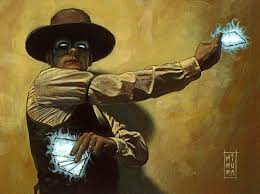记忆方法
1. hawk => huck- + -ster => huckster.
中文词源
huckster 强行推销的人,沿街叫卖的小贩
huck,蹲下,叫卖,词源同hawker,-ster,人。
英语词源
- huckster
-
huckster: [12] The Low German dialects of northern Germany appear to have had in prehistoric times a root *huk- which denoted ‘sell’. It has been suggested that this was the source of English hawker ‘peddler’, and with the alternative agent suffix -ster (which originally signified ‘female doer’, but in Low German was used for males) it produced huckster – perhaps borrowed from Middle Dutch hokester.
=> hawk - huckster (n.)
- c. 1200, "petty merchant, peddler" (often contemptuous), from Middle Dutch hokester "peddler," from hoken "to peddle" (see hawk (v.1)) + agent suffix -ster (which was typically feminine in English, but not in Low German). Specific sense of "advertising salesman" is from 1946 novel by Frederick Wakeman. As a verb, from 1590s. Related: Huckstered; huckstering.
权威例句
- 1. A huckster offered to sell Carnegie the formula for guaranteed success for $20,000.
- 一名骗子推销员提出以两万美元的价格卖给卡内基一张保证成功的秘方。
